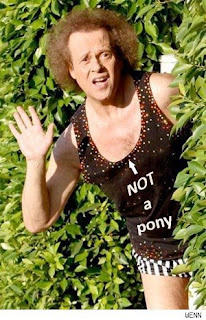When I attended my first meeting for a local writer’s guild, I did a lot of nodding and smiling. A default reaction to feeling dauntingly obtuse. There I was in the middle of the largest gathering of kindred spirits I’d ever experienced (well, outside of church or a comic convention), and I wasn’t sure I understood their language. We were all speaking English, of course, but I was tripping over enough buzzwords, acronyms, and iconic phrases to make me question whether I knew anything about writing at all.
This wasn’t any sort of intentional exclusion, mind you. I’m reasonably sure that most passions and professions claim their own set of specialized vocabulary, to one extent or another. Coming from a nursing background, I’d seen many an eye glaze over when I start throwing around medical terminology. It didn’t take me too long to draw the obvious parallel. Before you can effectively talk shop, you need to know the lingo.
It seemed to me that I had two choices. I could either risk my pride by admitting ignorance, or risk missing out on an invaluable information base.
Well, I was there to learn outside of a vacuum, wasn’t I?
Pride lost the argument. I looked around until I found a sufficiently non-threatening face, and promptly recruited myself a translator. I wish I could recall exactly who it was I had whispering hasty explanations to me throughout the rest of the meeting. I owe them a coffee–and my eternal gratitude. They gave me a much needed boost onto the learning curve.
Over the next several months, a number of my new guild-mates were kind (and patient) enough to continue answering random questions, pointing me to books and web sites, and otherwise filling in gaps in knowledge where Google searches had failed me. In that time I’ve kept track of a number of definitions I wished I would have known starting out. So for those new to the organized writing world, I wanted to offer a few of the orienting basics–in some semblance of a logical progression.
For those of you who’ve been navigating these literary waters for some time now, I would appreciate any suggested additions to the list! 🙂
MS = Manuscript.
WIP = Work In Progress (typically in reference to one’s current manuscript.)
MC = Main Character.
POV = Point of View (Refers to the character(s) and/or perspective from which you decide to tell your story.)
GMC = Goal, Motivation, Conflict. Your character wants ______ because ______, but they can’t have it because _______. (A way of reducing the essence of the book’s plot down to 2 sentences. A critical ingredient to an effective query.)
TSTL = Too Stupid To Live (When one of the writer’s objectives in a story to get the reader to care about what happens to their primary characters, you don’t want them thinking this about any of them.)
‘Show! Don’t tell’ = Writing in such a way that the reader is able to experience the story through a character’s thoughts, words, actions, senses, and feelings rather than through the narrator’s summarization. (Often used as an admonishment, or as a warning that you are starting to sound like a text book writer instead of a storyteller.)
Beta Reader = A secondary reader who previews a work with an eye to spotting errors, offering feedback, and/or suggesting improvements. (Typically a volunteer.)
Copy Editor = Someone who edits a manuscript for grammatical errors, along with pointing out inconsistencies and plot holes. (Typically a hired professional service.)
Novella = Between 17,500 and 40,000 words.
Novel = 40,000 words or more.
Single Title = Novels more than 80,000 words in length, not published as part of a publisher’s category.
Voice = The distinct style, personality, and perspective of a piece of writing. When authentic, it serves as a literary ‘fingerprint’ — made up of the author’s innate diction preferences, sentence patterns, world-view, disposition, mood, personal experiences, etc.
Hook = The all important first paragraph of your query letter or article, meant to ‘hook’ the reader’s attention.
Blurb = A short summary, usually referring to the words on the back of the book jacket.
Query = A sales letter through which you attempt to market your idea to an agent or editor.
Pitch = Same concept as a query, but often used in reference to a session with an agent or editor in person (or live chat/skype, if done via the internet).
Slushpile = An accumulative ‘pile’ of unsolicited manuscripts that have been sent to a publisher or editor.
HEA = Happily Ever After



